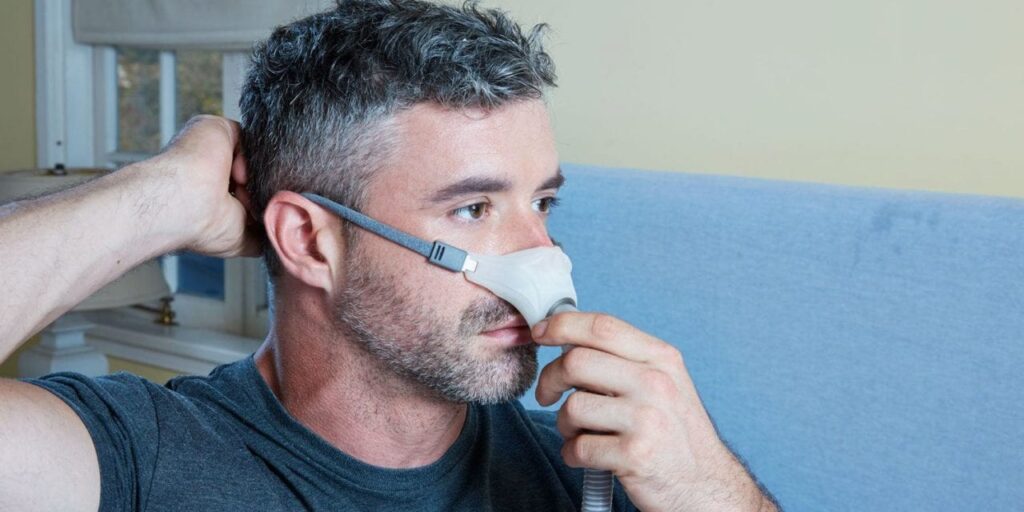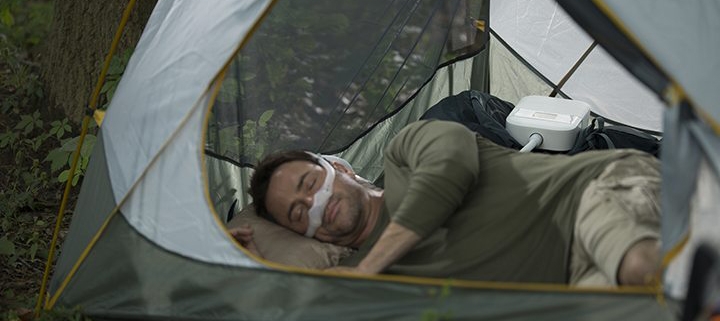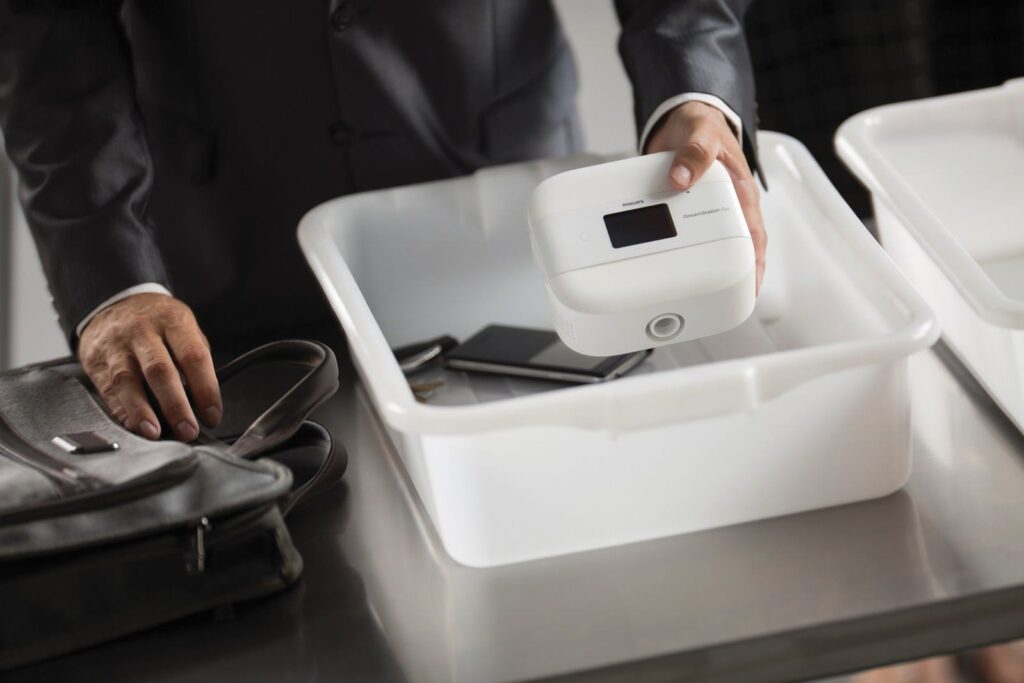If you need a CPAP machine, a tool often used to treat sleep apnea, you must take it with you everywhere you go. Fortunately, taking a CPAP machine on the road need not be a hassle, while certain machines make it simpler than others.
Many people feel they can just leave their cpap machine at home for a few days because they wrongly assume they can do without utilizing positive airway pressure while they are on vacation, at work, or for other reasons. packaging and transporting their tools was a concept.
However, whether or not you utilize your treatment, sleep apnea still develops. Without a cpap machine, you face the risk of developing all the undesirable, and sometimes even harmful, effects of untreated sleep apnea that CPAP is designed to prevent.
The good news is that taking a CPAP machine on the road is considerably simpler than you would think. In certain circumstances, using your treatment doesn’t even need power.
Traveling with a portable CPAP machine doesn’t need a lot of planning. There are a few things you need attend to before your departure date, however;
The majority of more recent machines are compact, lightweight, and often have a carrying bag, so traveling with them shouldn’t be difficult. However, there are CPAP devices designed specifically for travel that are even more practical and portable. If you travel often, it would be worthwhile to spend the money on a second, travel-focused machine.
Make sure you have the appropriate power adaptors on hand.
Finding you can’t charge your phone when you get at a location is annoying enough, but learning you can’t keep your possibly life-saving equipment operational is awful news. Always make sure you have all the necessary plugs and adaptors for your destination. Since virtually all modern devices have universal power supply that can adjust to different voltages, traveling internationally shouldn’t be an issue.
Make sure you have a printed copy of your airline’s approval if you’re flying. If you have one, your machine complies with the carrier’s norms and regulations. This will make dealing with TSA personnel, flight attendants, and X-ray machines easier. Always keep a doctor’s note stating that you need CPAP treatment on you.

Purchase a portable CPAP machine
If you’re on a flight, you may choose to check your travel CPAP in with the rest of your baggage. Even if you bring a CPAP machine inside the airline cabin, it is not regarded as a carry-on luggage since they are medical instruments. Additionally, in the event of lost baggage, it is preferable to carry your device on the flight.
The majority of CPAP devices may be transported without any problems. A mobile CPAP machine, however, can be worthwhile if you travel regularly or spend a lot of time outside, such as hiking and camping in the hills. These gadgets might be as little as a Coke can, and some of them can even be powered by the sun.
Modern CPAP devices are smaller, lighter, and come with a travel bag. This variation, sometimes known as “mini,” is even simpler and more portable to tote on the go. The ResMed Airmini is a great illustration of this kind of device.
A backup battery pack could be something you want to think about getting or renting. These are excellent if you want to go camping or just as a safety measure against power shortages.
You may wish to learn more about using a CPAP while flying by contacting your airline. For the purpose of ensuring that your model complies with FAA rules and regulations, several airlines want at least 48 hours’ notice before using an in-flight CPAP machine. Many airlines demand that your equipment has correct labeling stating that it complies with FAA safety standards and is authorized for use on flights.
Bring extra parts or see what’s available locally.
If your trip will be more than a few days, find out in advance where you can get replacements if necessary after you get at your location. Bring additional components, such as extra mask cushions and maybe even a backup power pack, if that isn’t a possibility.

Get the machine ready for the journey.
Make sure the gadget is always packaged securely. You absolutely do not want it to be harmed during transportation. Make advantage of any offered travel bags. Never forget to completely empty the humidifier chamber before a trip and give it time to dry. This will reduce the possibility of spillage and protect the equipment from harm.
Why it’s essential to carry your CPAP with you
If you use a CPAP machine, you are already well aware of how crucial it is to utilize it each and every night. It is essential to take it with you when you travel because of this. Setbacks in your treatment may result from use pauses. Additionally, the quality of our sleep is usually worse than it is at home when we sleep in strange places, such as a hotel room, your cousin’s home, or even a tent.
According to research, when we sleep in unexpected settings, a portion of our brain really remains up to operate as a kind of “night watchman” and keep an eye out for threats. This indicates that our level of tension has already reached a high; avoid adding to it by going to bed without your gadget.
You shouldn’t be denied the same quality of life as everyone else just because you suffer sleep apnea. Travel is a crucial aspect of the human experience, whether it be for business or pleasure. It’s a tiny price to pay if having a little more gear makes the difference between having peace of mind and sleeping through the night worrying. Put the vehicle in your possession and leave.
Final thoughts
Each night wearing a mask while you sleep might be difficult and takes some getting accustomed to. However, once users become used to wearing the gadget, there is absolutely no reason why they shouldn’t go on leading as normal a life as they can. Furthermore, using a CPAP to treat sleep apnea shouldn’t hinder someone from flying.
Other related articles:
Sleep Hygiene: Why You Need to Get More Sleep
The Basic Principles of an Excellent Sleep Hygiene
Sleep better with these CPAP masks tips

